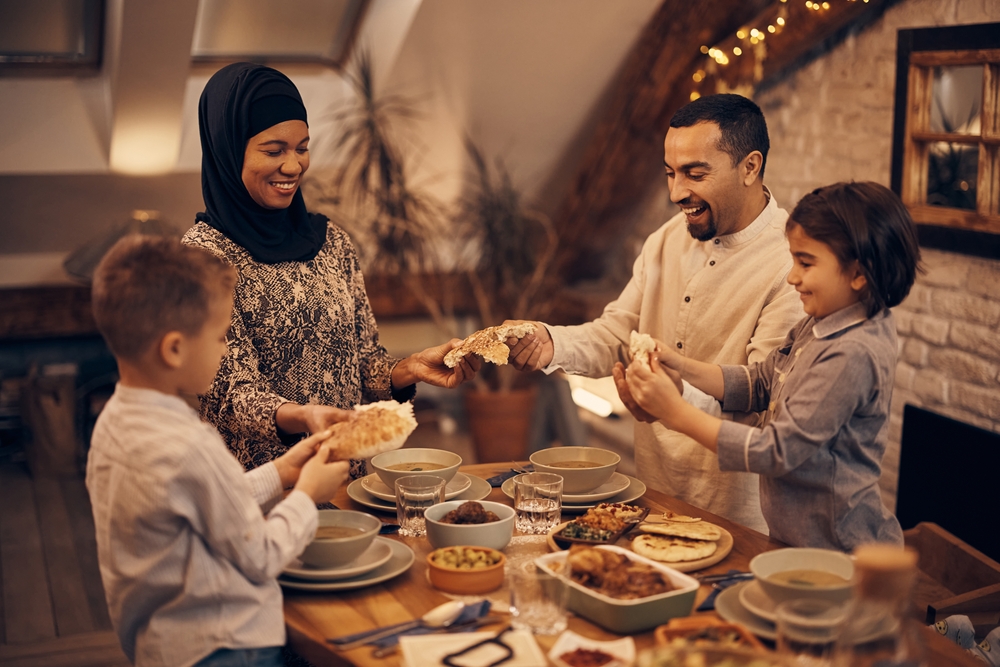The Comfort of Familiar Routines
Over the years and throughout centuries, there have been many changes in cultures and families, but the one constant and celebrated aspect of these is tradition. Traditions have served as the heartbeat of family life for many different cultures and are what keep cultures thriving. Tradition shapes values and provides people with the opportunity to gain a sense of belonging, know who they are, and share that with others- learning about themselves and others. Whether it’s a special meal prepared the same way each year, a story passed down through generations, or an activity that children anticipate with excitement, these routines create a sense of continuity.
Many families often find comfort in partaking in the same practices year after year. It strengthens their ties to their ancestors and reminds them where they come from and who they are. It encourages them to keep traditions alive to show pride in their heritage and allow younger generations to understand who they are. On top of this, they can strengthen the bonds between others in their culture and keep them connected to their community. This is essential today because it’s so easy to get caught up in the rush and mundane routine of life and forget about your roots. Traditions are what remind you to celebrate your culture and bring you back to what matters most: you, your family, and your community.
Small Moments Become Lasting Memories
Interestingly, many family traditions don’t start out as traditions at all. They usually spark from something that has been done accidentally or a one-off act that sticks. It could even be something a family member who has passed on once did, turning into a tradition to celebrate and commemorate them. You could spontaneously decide to bake cookies on the first snowy day, and that may turn into a yearly event that excites children. The same could be done with a summer picnic in the park on the first day of summer, and every year your family do this. These moments stick, not because they are grand, but because even the small acts are something that is consistent and repeated. They bond your family closer and bring them together to share conversations, joy, and laughter. Over time, these simple acts grow into powerful memories that hold a special place in the hearts of every family member.

The Role of Traditions in Family Identity
Traditions reflect a family’s or community’s identity and provide individuals with a sense of belonging in their family and community. They are the stories you tell, the foods you cook, the songs you sing, and the celebrations you hold dear. Having these practices and routines in your life can provide your family and community with structure and pride in who you are. You can feel at ease and like you have a purpose in life, reminding both children and adults that they are a part of something bigger than themselves. Whatever activity your family or community does, such as lighting candles, enjoying a holiday meal, or spending time together in shared reflection, you are reinforcing the values and heritage of your family and culture. It shows you, your family members, your community, and others what makes you unique and why you hold certain beliefs and values.
Passing Traditions Across Generations
A very beautiful part of having traditions is the fact that something that is started in your family or community can live on through generations. This means that even when you’ve left this world, these traditions can still continue on and keep your culture thriving for years to come. You can pass traditions on to your children and instil the values of your family or community in them. As well as this, grandparents play a vital role in passing down traditions. They teach grandchildren the significance of certain practices because they know the most about their historical roots. They can easily share the history of the traditions and why your family or community partakes in certain routines and practices. This provides little ones with a sense of purpose from a young age and makes them feel like they belong, boosting their confidence in who they are and making them feel proud of themselves.
At the same time, younger generations often bring their own interpretations of historical traditions. They typically blend old customs with new ones to create a tradition that still reflects the family’s or community’s values, but is a much more up-to-date version that can stand the test of time. This blending keeps traditions alive and relevant, allowing them to evolve while still carrying the essence of the past. In this way, traditions become a living link between where a family has been and where it is going.
Creating Traditions That Reflect Modern Life
Life is always changing as the world evolves. What is modern now will soon become more traditional because something else will be more modern. Due to this, traditions in families and communities need to have the ability to adapt to these changes and have space for a modern twist to keep traditions relevant and alive. Families today often create routines that reflect their current lifestyle, interests, and cultural influences.
Some may revolve around shared hobbies, like weekly game nights or annual trips to a favorite spot. Others might draw from cultural and spiritual observances that provide a deeper sense of meaning. For instance, many households around the world are already preparing for significant upcoming milestones, such as Ramadan 2026, which serves as a time of reflection, community, and generosity. These moments show that traditions hold a lot of nostalgia for families, as well as helping them to find purpose and connection in the modern world.
Why Traditions Truly Matter
Traditions truly matter for numerous reasons, but they help you connect to your family and community. You can strengthen relationships in your life with the people you love most and who share the same values as you. You can be connected to your past, to your loved ones, to your sense of identity, and to your own values. Traditions can help you feel as though you belong and shape your identity of who you are. They can also become a routine that provides you with something to look forward to and make cherished memories to remember for years to come. While the specific traditions may vary from household to household, their impact is shared with many. This is because they remind us of who we are, where we’ve been, and what we hold dear.
Building the Future, One Tradition at a Time
Every tradition has a beginning, and families have the opportunity to create new ones at any moment. A simple act done with intention, whether it’s gathering for a meal, taking a walk on a certain day, or reflecting on a shared value, can grow into something that will be treasured for generations. By nurturing and adopting these routines, families not only honor their history but also shape the stories that will be told long into the future.

Leave a Reply